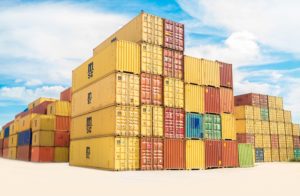- Home
- Specialisations
- Tax Controversy
- Tax fines
- Tax audit and information warrant
- Import and export of goods – customs duties, excise duties and sales tax (VAT)
- Collection and liability of tax debts
- Internal inquiry
- Anti Money Laundering & Combatting Terrorism Financing
- Regulatory Disputes (Financial Supervision)
- International Tax Disputes Resolution (ITDR)/Mediation
- Services for service providers
- Legal & Tax Risk Management
- BLTM Academy
- About us
- News
- Contact

Import and export of goods – customs duties, excise duties and sales tax (VAT)
When you import or export goods, you have to deal with the Tax Authorities and Customs Service. This can sometimes lead to discussions about the monetary value attached to goods, the classification of goods (GN codes) or the sales tax owed or receivable.
Discussion with the Customs Service – customs duties
As soon as you transport goods from outside the European Union to the European Union or vice versa, you will be faced with customs duties. A common dispute with the Customs Service arises after an investigation has been carried out into the goods and the commodity code (GN codes) under which they were classified during the import of export. The result may be that the Customs Service is of the opinion that the used GN code was incorrect and believes that the goods should have been classified under a different code – with a higher customs tariff. Consequence? You still owe the difference in customs duty. This can possibly be increased with an additional fine. In such a case you will receive an invitation to pay (“uitnodiging tot betaling” -UTB). When imposing such an UTB, formal rules apply to which the Customs Service must comply.
imposing such an UTB, formal rules apply to which the Customs Service must comply.
Booij Legal & Tax offers assistance when Customs initiates such an investigation or when you are confronted with an UTB (payment request).
Discussion with the Customs Service – Excise
It is common practice that excise goods are transported under suspension of excise duty to another Member State, are received and deregistered in the receiving Member State, but after a check in that country they do not appear to be physically present. Experience shows that the Customs Service first comes to you with questions and demands that you pay the excise due. Whether the Customs Service is in its right to do so can be questionable at times. This is also the case when your customer’s excise license has been withdrawn – without your knowledge – after the transport of the excise goods has commenced. This usually also leads to discussions with the Customs Service.
Due to our specialisation in this field Booij Legal & Tax can help you in situations like these.
Discussion with the Tax Authorities – VAT
Whenever you import and/or export goods, you also have to deal with VAT.
Common problems relating to the use of an, so called, Article 23 permit or the request for a refund after delivery of the goods to a customer in another Member State occur regularly. In both cases, it happens regularly that the VAT identification number that the customer has passed on to you is (no longer) valid. At that moment, the Tax Authorities will soon proceed to the making you liable for the sales tax that is still (apparently) owed. The amounts involved can be considerable. Because in such a case the Customs Service always tries to determine whether there is a case of sales tax fraud involved, your position within the chain of events is also determined. In extreme cases the Tax Authorities may revoke your VAT identification number. In order to avoid such extreme situations it is essential for you to understand what information the Tax Authorities are looking for.
How can you demonstrate that you have fulfilled all of your obligations? Who will guard your rights in these matters? Booij Legal & Tax will gladly help you with any problem you may face with the Customs Service.
We can also assist you when meeting the Customs Service and/or the Tax Authorities in person regarding issues concerning customs duties, excise and sales tax (VAT).
